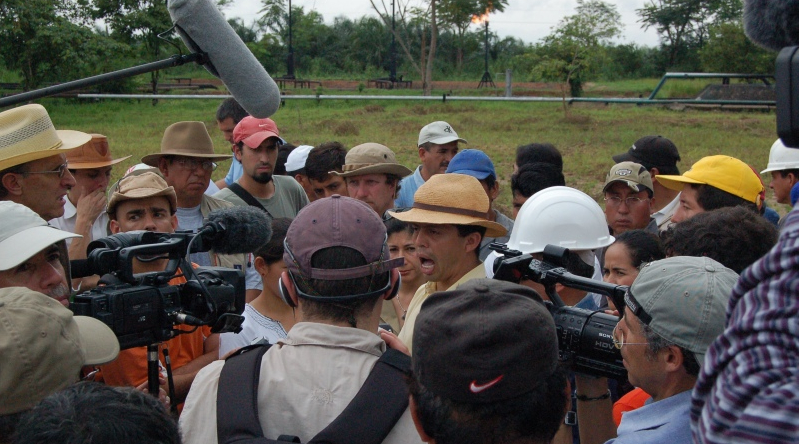This week a judge in Ecuador handed Chevron an order to pay US$ 9.8 in connection with damages which indigenous peoples allege were caused by decades of oil pollution and environmental neglect. The company denies the allegations and although the decision is a landmark for victims of environmental harms in countries like Ecuador, it is unlikely damages will be paid soon. As Professor Ralph Steinhardt, George Washington University Law School, told the New York Times the company is likely to fight the decision further: “It might as well be Monopoly money, given all the respect that Chevron will show it…There is a legal regime for enforcing foreign judgments but there is a lot of discretion for U.S. judges to suspend the enforcement of foreign judgments.”
Chevron appears to be seeking just such recourse, both in the US courts and through international arbitration where, the company reports, there have been developments in recent weeks. One of those is a suit in the U.S. filed by the company against some of the plaintiff lawyers and consultants alleging a “fraudulent litigation and PR campaign against the company.”
For their part, the plaintiff lawyers and campaigners countered that “the company’s new legal actions are designed to intimidate lawyers and funders and to provide a fake cover story for shareholders when the company is hit with an adverse judgment” said plaintiff spokesperson Karen Hinton. Pablo Fajardo (pictured above centre), the lead attorney in Ecuador in the case, said “Irrefutable scientific truth will triumph over Chevron’s intimidation tactics and desperation.”
Shooting the Messenger?
Chevron is known for its tenacity in fighting off court challenges by campaigners seeking judicial remedy for victims of harms allegedly connected to company activities. In 2008, the company won a case brought in the U.S. by Nigerians who alleged company complicity in crimes committed by Nigerian security forces in 1998. But this latest case had been been fought primarily in a southern jurisdiction – Ecuador – and was evidence that domestic courts may be in a position to start taking on some of the human rights and environmental cases that had previously been heard almost exclusively in the US.
httpv://www.youtube.com/watch?v=79Lmqqtmt1k
But doing so forces plaintiffs to adopt media and other tactics that had long been the reserve of large companies. As described in the latter half of this week’s edition of Listening Post, broadcast on Al Jazeera English, the companies targeted by such tactics are now pushing back, themselves using legal actions to target the documentary film makers who cover the cases in depth. In the process, these cases are creating real concerns about the implications for investigative journalism as conducted by documentary film makers and freedom of speech more generally.
For more on the challenges facing litigation against business in general, see Overcoming Obstacles to Justice: Improving Access to Judicial Remedies for Business Involvement in Grave Human Rights Abuses co-authored by LoR’s Mark Taylor, Rober C. Thompson and Professor Anita Ramasastry.
